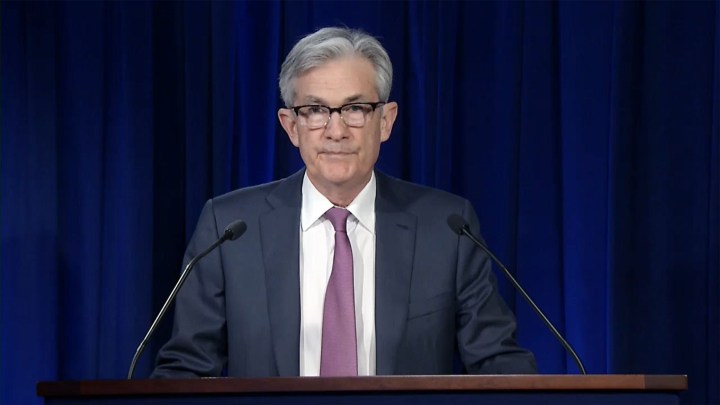
Fed says not to worry about debt right now. But we have to, eventually.
Fed says not to worry about debt right now. But we have to, eventually.

Federal Reserve Chair Jerome Powell said on Wednesday that now is not the time to worry about the debt the government is racking up as a result of COVID-19 stimulus packages.
“This is not the time to act on those concerns,” Powell said. “This is the time to use the great fiscal power of the United States to, to do what we can to support the economy and try to get through this with as little damage to the longer-run productive capacity of the economy as possible.”
But Jorge Barro, a fellow in public finance at the Baker Institute at Rice University, is arguing that policymakers can’t ignore the long-term consequences of the debt the U.S. government is racking up.
“I don’t think we can just wish it away,” Barro said. “It’s not just gonna disappear on its own. At some point, we’re gonna have to raise taxes or make some painful spending cuts to balance the budget. And when that time comes, there are going to be costs associated with it.”
Politicians never want to tell voters about the need to balance the budget through tax hikes or spending cuts. Brian Riedl, senior fellow at the Manhattan Institute, noted that’s been the problem for a long time.
“The problem is not running deficits now because the economy requires keeping businesses and families afloat,” Riedl said. “The problem was that the United States built up an additional $9 trillion of debt during what was the longest economic boom in American history. There is absolutely no excuse. It was economic malpractice for the Congresses and the presidents to not get our fiscal house in order over the last decade,” he said.
Instead of paying down debt, Congress passed tax cuts and additional spending bills.
Some argue that the United States doesn’t have to worry about debt as long as there’s economic growth. David Primo at the University of Rochester in New York thinks that’s naive.
“If the government has to print money to pay our debt, and it’s just not feasible to raise taxes to do so, interest rates are going to go up, that means that inflation is going to be a problem,” Primo said.
Higher interest rates would mean debt eating up a big part of the federal budget.
“The cost of even very small increases in interest rates is very high because our debt load is so high,” said Maya MacGuineas, president of the Committee for a Responsible Federal Budget, a nonpartisan think tank in Washington, D.C.
MacGuineas said that puts pressure on the Federal Reserve to keep interest rates low.
“Both at a time like this when they would be low, but even when the economy starts to heat up, again, because any uptick in rates will have profound effects on our interest payments and really spreads out other parts of the budget and could have a real negative effect on the economy.”
There’s a lot happening in the world. Through it all, Marketplace is here for you.
You rely on Marketplace to break down the world’s events and tell you how it affects you in a fact-based, approachable way. We rely on your financial support to keep making that possible.
Your donation today powers the independent journalism that you rely on. For just $5/month, you can help sustain Marketplace so we can keep reporting on the things that matter to you.


















